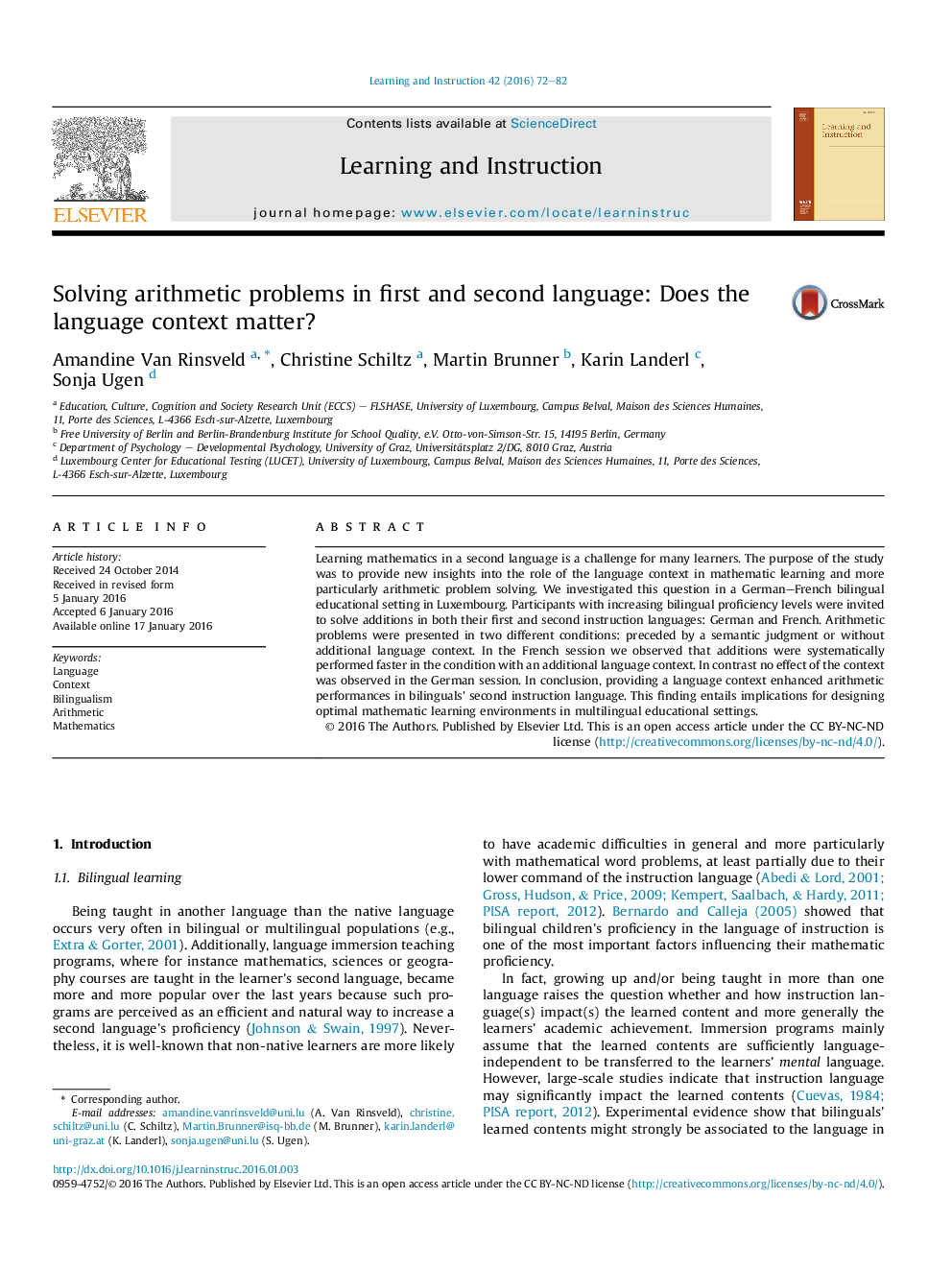| Article ID | Journal | Published Year | Pages | File Type |
|---|---|---|---|---|
| 6845773 | Learning and Instruction | 2016 | 11 Pages |
Abstract
Learning mathematics in a second language is a challenge for many learners. The purpose of the study was to provide new insights into the role of the language context in mathematic learning and more particularly arithmetic problem solving. We investigated this question in a German-French bilingual educational setting in Luxembourg. Participants with increasing bilingual proficiency levels were invited to solve additions in both their first and second instruction languages: German and French. Arithmetic problems were presented in two different conditions: preceded by a semantic judgment or without additional language context. In the French session we observed that additions were systematically performed faster in the condition with an additional language context. In contrast no effect of the context was observed in the German session. In conclusion, providing a language context enhanced arithmetic performances in bilinguals' second instruction language. This finding entails implications for designing optimal mathematic learning environments in multilingual educational settings.
Related Topics
Social Sciences and Humanities
Psychology
Developmental and Educational Psychology
Authors
Amandine Van Rinsveld, Christine Schiltz, Martin Brunner, Karin Landerl, Sonja Ugen,
